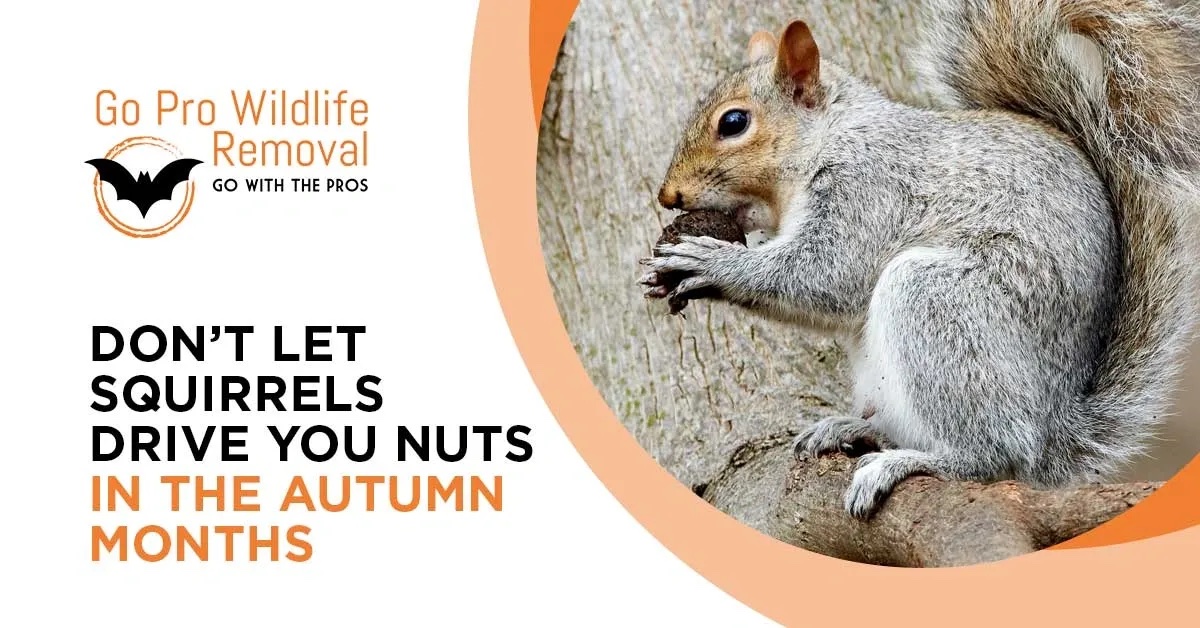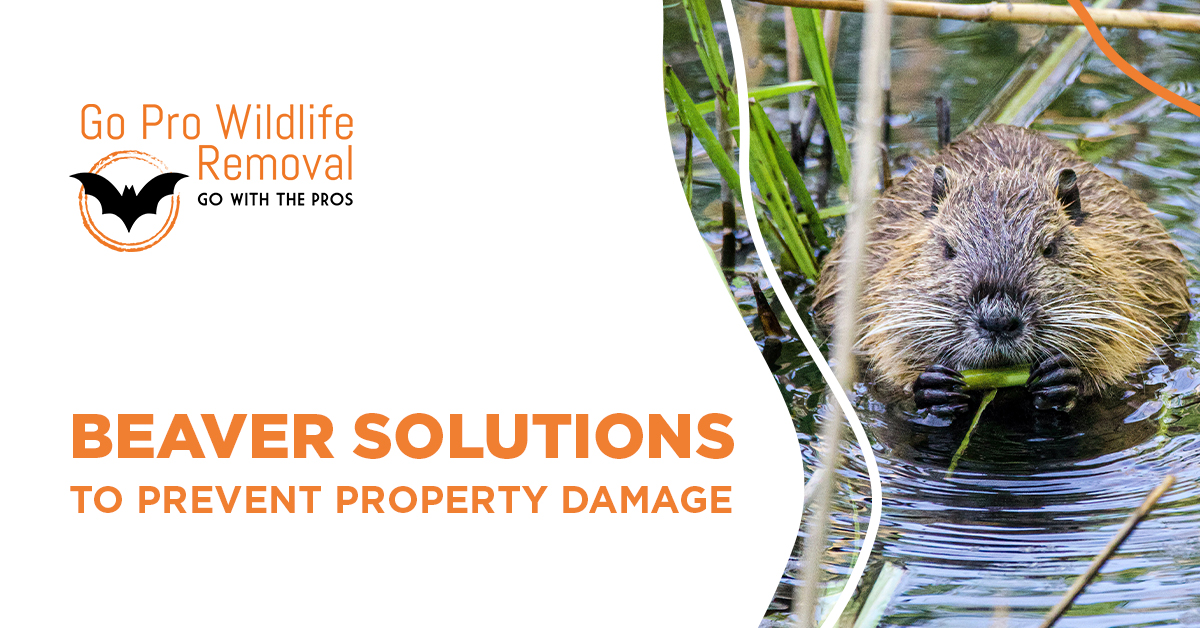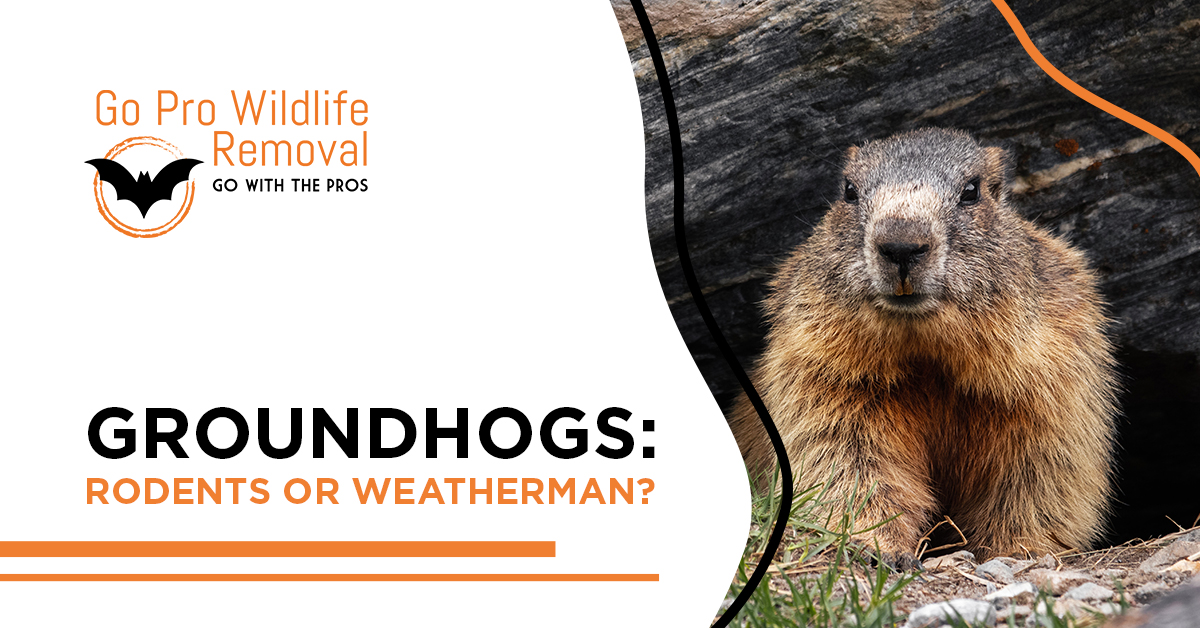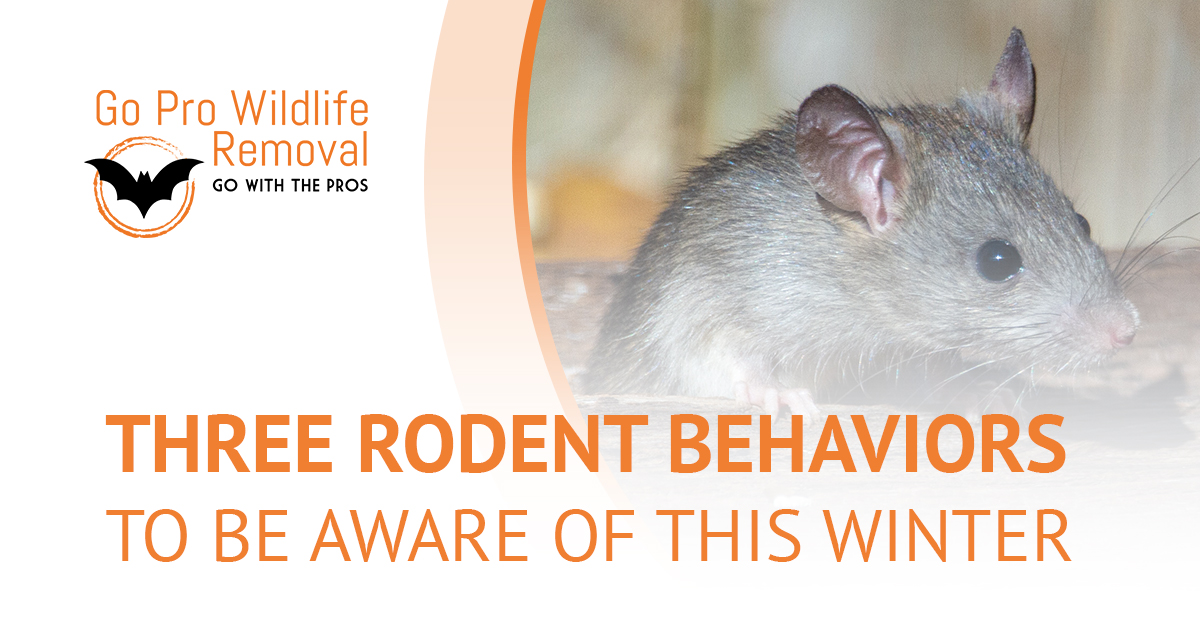by TRINDGROUP
Share

Squirrels are on the move this time of year, which gives them extra incentive to take (unwanted) shelter in your home. Naturally, squirrels are driven by their biological urges to eat, drink, mate, nest and explore. As temperatures begin to drop in late fall, squirrel activity increases along with the search for food and a place to store it for the coming winter.
How Do I know if I Have Squirrels in My Home?
If you hear noises coming from your attic that mimic chirping, scratching, banging or jumping, they might be signs of a squirrel infestation. Squirrel activity can resemble those of other rodents such as rats and mice, but there are a few distinct characteristics unique to squirrels.
- Noises: Noises made by squirrels are primarily heard during daylight hours because squirrels are active during the day and sleeping at night. Squirrels are significantly bigger than rats or mice, and therefore create a louder presence when moving about.
- Nests: Squirrels tend to build larger, shapeless nests out of a variety of materials, whereas rats and mice build smooth or rounded burrows.
- Droppings: Dropping color and shape can be a sure indicator of which rodent may be living in your home. Squirrel droppings have a brown or reddish tint and are rounded, while rat and mice droppings are dark brown or black with pointy edges.
How Do Squirrels Get in My Home?
Squirrels can run along power lines, jump from tree branches or climb rain gutters to gain access to the roof of your house. The most common entry points for squirrels are soffit edges, roof vents, gable vents and wall vents.
Because squirrels are rodents, they need to gnaw on hard surfaces to sharpen their constantly growing teeth. Squirrels will chew through insulation, drywall and plywood, and can create an entry point as small as half an inch.
How Do I Prevent Squirrel Infestations?
A squirrel’s impulse to explore is how they become an unwanted guest in your home. Inspecting and maintaining areas such as soffit edges, roof vents, gable vents and wall vents on a regular basis can decrease the chance of squirrels entering your home.
Go Pro Wildlife Removal has the expertise, experience and proper tools to get rid of your squirrel problem, no matter how simple or complex the situation is. Each member of our team is trained in squirrel identification, removal, trapping and control techniques. Go with the pros and call us today for a free inspection and estimate.
Five Most Common Places for Wildlife to Enter Your Home
Warm summer weather lures humans and animals outdoors to bask in the sun. Although you may appreciate the critters you encounter while in nature, having them invade your home is undesirable.
Five Most Common Places for Wildlife to Enter Your Home
Warm summer weather lures humans and animals outdoors to bask in the sun. Although you may appreciate the critters you encounter while in nature, having them invade your home is undesirable.
Case Study: Timely and Effective Raccoon Removal in Montgomery, AL
Homeowners never expect wildlife like raccoons, rodents or squirrels to cause problems within their dwelling, but issues can arise more often than one might expect.
Woodpecker Damage and Removal Process
The woodpecker is an unsuspected wild animal that can cause damage to your home or land.
Beaver Solutions to Prevent Property Damage
Beavers, known as North America’s largest rodent, know a thing or two about destruction.
Identifying 6 Non-Venomous Snakes in Alabama
As temperatures begin to rise in Alabama, more snakes will begin slithering their way out of hibernation.
Contact Info
Service Areas: Contact Go Pro today! We offer wildlife removal solutions in Auburn, Opelika, Lake Martin, Valley, Montgomery, AL and Columbus, GA areas.
Phone: (334) 744-0391
Hours: Open 9:00 am – 5:00 pm
Beavers, known as North America’s largest rodent, know a thing or two about destruction.
Each February we celebrate the Groundhog and while they are good at many things (historically weather is not one of them, sorry Punxsutawney Phil) they are experts at causing damage to your home’s foundation and your property.
It’s a common misconception that when colder, winter months roll around, rodents go into hibernation.
Human-Animal Relationship Awareness Week was created by the Institute of Animals and Society to highlight the connection between humans and animals and to promote a more positive attitude towards the well-being of animals.







